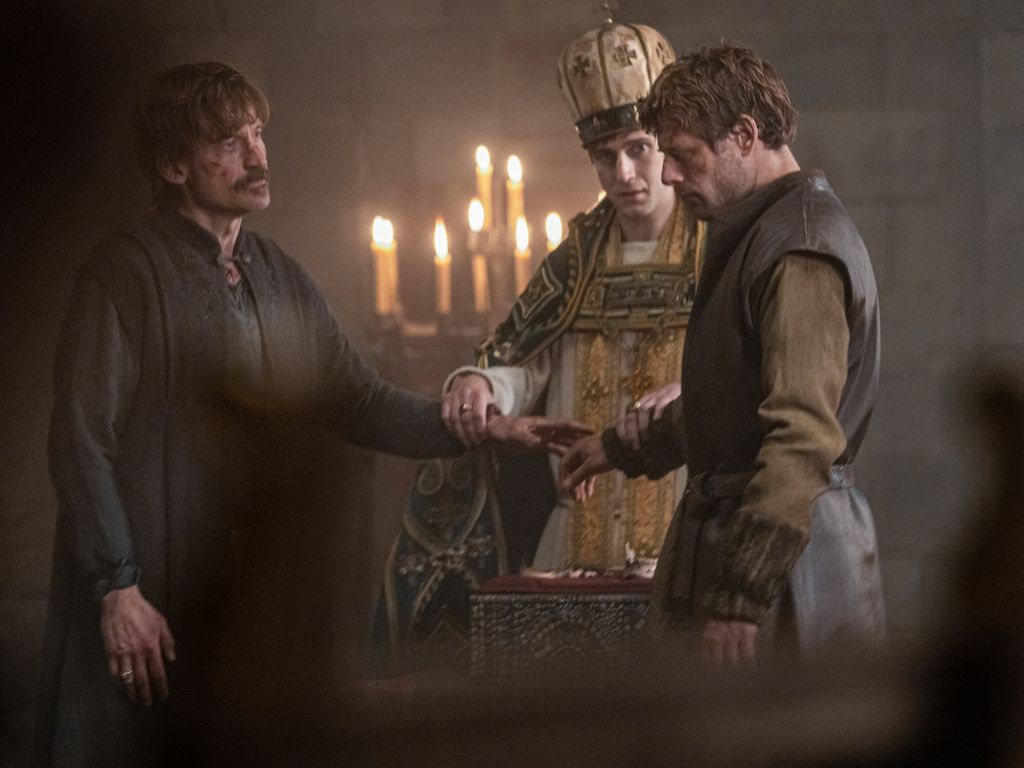When Netflix quietly dropped the BBC spy drama The Story That Shocked Britain, few expected it to shake the nation like this. Within hours, it became the most-watched title on the platform — not because of explosions or CGI chases, but because of something far more dangerous: the truth.

Set in a shadow-drenched London where loyalty is currency and trust is suicide, the series stars James Norton as Jonathan Hale — a once-decorated intelligence officer who vanished from MI6 records years ago. When he resurfaces, working as a security consultant for a Russian oligarch, the British government sends a young recruit to bring him in. But what begins as a retrieval mission spirals into a moral abyss — one where every handshake hides a blade, and every secret comes with a body count.
Each episode peels back another layer of the British intelligence world — a machinery of surveillance, manipulation, and moral decay that feels disturbingly real. From the opening scene, where Hale listens to the screams of a man he once trained before turning off the comms, to the final shot of a funeral no one was supposed to attend, The Story That Shocked Britain never lets you breathe.
But what’s truly unsettling is how close it feels to home. The show’s creator, Tom Edge — known for The Crown — reportedly drew from classified briefings and declassified Cold War archives. The result? A story that blurs the line between historical fact and contemporary fear. One MI6 retiree told The Times that some plot points “cut too close to reality,” adding, “There are things in that script that were never meant to see daylight.”

Visually, the series is breathtaking — not with glamour, but with dread. London isn’t the postcard skyline of glossy thrillers; it’s a graveyard of reflections. Neon bleeds into rain-soaked streets, cameras hum from lampposts, and a cold wind whistles through every empty alley. The cinematography mirrors the psychology of its characters: fractured, paranoid, and poisoned by power.
At the center of it all is Norton — whose quiet magnetism anchors the chaos. Gone is the charming priest from Grantchester or the tortured lover from Happy Valley. Here, he’s something else entirely — a man stripped of faith, family, and flag, clinging to the last scrap of his humanity like a dying ember. In one unforgettable scene, he faces his former handler, played with chilling subtlety by Lesley Manville. “You taught me how to lie,” he says, voice trembling. “But you never told me what it does to the soul.”
That line — now quoted across social media — has become the moral heartbeat of the show. The Story That Shocked Britain isn’t just about espionage; it’s about erosion. The erosion of truth, of conscience, of what it means to belong to something bigger than yourself.
Fans have flooded forums comparing it to The Night Manager, Bodyguard, and even Tinker Tailor Soldier Spy, but many agree: this is darker. “It’s The Night Manager on steroids,” one critic declared. “Colder, smarter, and heartbreakingly human.”

And the ending — without spoiling it — is a gut punch that leaves you staring at the screen long after the credits roll. No tidy resolutions, no triumphant music. Just silence, like the kind that follows a confession.
Behind the scenes, Norton has admitted that filming took a toll on him. “It got under my skin,” he told Radio Times. “You start asking yourself the same questions your character does — what’s the price of loyalty, and who decides what’s right?”
Audiences are asking the same thing. In an era of misinformation and blurred morality, The Story That Shocked Britain feels less like entertainment and more like a warning. It doesn’t dazzle you with gadgets or chases; it crawls inside your conscience and refuses to leave.

So when you press play, be prepared. This isn’t the escapism you expect from Netflix. This is a descent — a slow, chilling fall into the shadow world that exists just beneath ours. A world of silence, deception, and sacrifice.
And by the time you reach the final frame, you may find yourself wondering:
Was it fiction?
Or did Britain just confess something it was never meant to?




